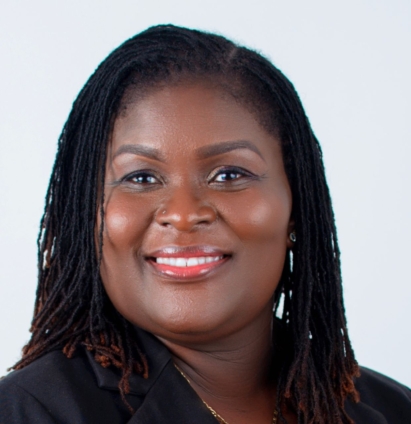Research by Jean Chatzky and her team in the late 2000s highlighted that creating wealth isn't just about income and assets; it's about specific behaviours like saving and investing. However, in Africa, including Ghana, savings pose a significant challenge. Data from the World Development Indicators shows a decline in Sub-Saharan Africa's savings ratio from 30% in 2000 to 20% in 2020. Ghana mirrors this trend.
The recent global economic landscape, characterized by volatility, has further complicated matters. Factors such as increased inflation, geopolitical tensions, currency depreciation, and banking sector clean-ups have heightened apprehension surrounding savings and investment behaviours in Ghana. A recent study by Old Mutual indicated that about 43% of Ghanaians are risk-averse financially, 61% are dipping into savings to survive, and only a quarter prioritize savings for retirement.
Despite these challenges, there's a strong case for a robust savings and investment culture. Even in the face of uncertainty, opportunities abound.
Economic Challenges in Ghana: Navigating Turbulent Times
Ghana finds itself in a turbulent period marked by various economic challenges. These include a challenging business environment, soaring inflation, currency depreciation, and escalating lending rates. For instance, the inflation rate surged to a concerning 44.7% in 2023, eroding the purchasing power of Ghanaians and hindering sustained economic growth. This inflationary trend has directly impacted the cost of living and investment stability.
Additionally, the depreciation of the Ghanaian cedi against major currencies has increased the import costs of essential goods and services, further exacerbating inflation. The increase in lending rates has made borrowing more expensive, dampening economic activity and eroding consumer and investor confidence.
In response, the government introduced the Domestic Debt Exchange Programme (DDEP) in December 2022 to address Ghana's debt crisis. While intended to stabilize the economy, this move has had significant repercussions for private investors, leading to a loss of trust in government securities.
The Importance of Saving and Investing in Uncertain Times
Despite economic hardships, saving and investing remain crucial. Individuals must prioritize financial prudence and strategic resource allocation to secure their future financial well-being. This includes adopting austerity measures, embracing frugality, and making informed financial decisions. By reassessing their financial habits, individuals can minimize expenses and eliminate wasteful spending, freeing up more resources for saving and investing.
Frugality and Prudence in Financial Decisions
Frugality is key, focusing on smarter spending aligned with long-term financial goals. By prioritizing expenditures offering real value and avoiding impulsive purchases, individuals can maximize every cedi and build a solid financial foundation.
Prudent investment decisions involve due diligence, understanding risks, and making informed choices aligned with one's risk tolerance and investment horizon. Investors should avoid high-risk, high-return schemes and focus on stable, consistent returns.
The Strategic Role of Saving and Investing
Saving provides a crucial safety net, enabling individuals to navigate financial emergencies without resorting to high-interest debt. Investing, though risky, offers a path to wealth accumulation and financial independence. Diversification across asset classes mitigates risk, including fixed-income securities, equities, real estate, and mutual funds.
The Unwavering Case for Saving and Investing
Despite economic challenges, the imperative for individuals to save and invest remains. These acts are not just about immediate well-being but also about faith in the future. By committing to save and invest, individuals are building a buffer against economic shocks and contributing to their future financial stability and the nation's economic recovery.
Conclusion
Saving and investing wisely today are crucial steps towards securing a prosperous future. Despite economic challenges, by adopting a disciplined approach to financial management, individuals can overcome obstacles and build a more prosperous tomorrow for themselves and Ghana.
Happy Ghana Month!
Latest Stories
-
Ivorian defender Odilon Kossounou joins All Star Festival 2025 as special guest
25 seconds -
Kenyan dies in custody after arrest for online post
51 minutes -
Today’s front pages: Monday, June 9, 2025
52 minutes -
Satellite installer remanded in custody for defiling 3 girls
2 hours -
Kennedy Agyapong under fire for waging ‘religious’ campaign against Bawumia
2 hours -
How Ghana lost over GH¢2bn swapping gold for fuel
3 hours -
Zoomlion Ghana Ltd and Zanzibar partner on waste management, sustainability
4 hours -
‘Our indigenous cocoa buyers may go extinct’ – Cocobod CEO warns of LBC collapse
4 hours -
Cocobod pleads for 3% of banks’ reserves to rescue local LBCs
5 hours -
There was no syndicated loan in 2024/25 so no seed fund for LBCs – Randy Abbey discloses
5 hours -
First black Premier League referee Rennie dies aged 65
6 hours -
Trump’s travel ban on Togo, other 11 countries goes into effect today
7 hours -
US and China set to meet for trade talks in London
7 hours -
Italy citizenship referendum: ‘I was born here – but feel rejected’
7 hours -
Trump’s intervention in LA is a political fight he is eager to have
7 hours

